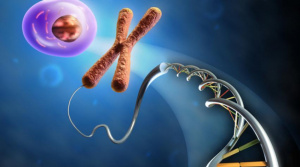Difference between revisions of "Language/Modern-greek-1453/Vocabulary/Greek-Roots-in-Biology"
| Line 3: | Line 3: | ||
== '''Biology: Live Science - What is biology?''' == | == '''Biology: Live Science - What is biology?''' == | ||
The word biology is derived from the | The word biology is derived from the Greek words "bios" meaning "life" and "logos" meaning "study" and is defined as the science of life and living organisms. An organism is a living entity made up of a cell, e.g. bacteria, or multiple cells, e.g. animals, plants and fungi. Aspects of biological science range from the study of molecular mechanisms in cells to the classification and behavior of organisms, the evolution of species and the interaction between ecosystems. Biology often overlaps with other sciences; for example, biochemistry and toxicology along with biology, chemistry and medicine; biophysics with biology and physics; stratigraphy with biology and geography; astrobiology with biology and astronomy. Social sciences such as geography, philosophy, psychology, and sociology may also interact with biology, for example, in the administration of biological resources, developmental biology, biogeography, evolutionary psychology, and ethics. Biology is the branch of science that studies life and living organisms. There are many branches of science that are part of biology, including ecology (how organisms interact with their environment), agriculture (the study of the production of crops from the earth), biochemistry (the chemical reactions necessary to support life), botany (the study of plants), physiology (how living organisms work), and zoology (the study of animals). | ||
Revision as of 20:24, 28 November 2021
Biology: Live Science - What is biology?
The word biology is derived from the Greek words "bios" meaning "life" and "logos" meaning "study" and is defined as the science of life and living organisms. An organism is a living entity made up of a cell, e.g. bacteria, or multiple cells, e.g. animals, plants and fungi. Aspects of biological science range from the study of molecular mechanisms in cells to the classification and behavior of organisms, the evolution of species and the interaction between ecosystems. Biology often overlaps with other sciences; for example, biochemistry and toxicology along with biology, chemistry and medicine; biophysics with biology and physics; stratigraphy with biology and geography; astrobiology with biology and astronomy. Social sciences such as geography, philosophy, psychology, and sociology may also interact with biology, for example, in the administration of biological resources, developmental biology, biogeography, evolutionary psychology, and ethics. Biology is the branch of science that studies life and living organisms. There are many branches of science that are part of biology, including ecology (how organisms interact with their environment), agriculture (the study of the production of crops from the earth), biochemistry (the chemical reactions necessary to support life), botany (the study of plants), physiology (how living organisms work), and zoology (the study of animals).
Sources
https://www.ntnu.edu/biology/about-us/what-is-biology
- Ευγενική χορηγία που στοχεύει να βοηθήσει μαθητές ή μη, απανταχού της Γης, που επιδίδονται στην εκμάθηση της ελληνικής γλώσσας!
- Contribution bénévole visant à aider les personnes, partout dans le monde, qui sont engagées dans l'apprentissage de la langue grecque !
- Voluntary contribution aimed at helping people, all over the world, who are committed to learning the Greek language !
